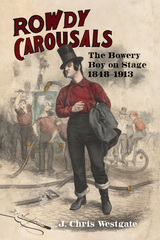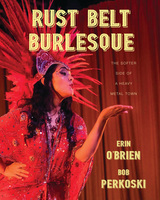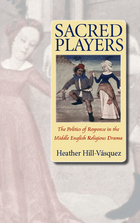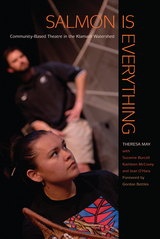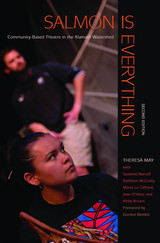Elizabeth Gurley Flynn: The Rebel Girl, Democracy, and Revolution
Rutgers University Press, 2025
Cloth: 978-1-9788-1757-9 | eISBN: 978-1-9788-1758-6 | Paper: 978-1-9788-1756-2
See other books on: Rebel Girl | Revolution | Revolutions, Uprisings & Rebellions | Social Activists | Trasciatti, Mary Anne
See other titles from Rutgers University Press
Cloth: 978-1-9788-1757-9 | eISBN: 978-1-9788-1758-6 | Paper: 978-1-9788-1756-2
ABOUT THIS BOOK | AUTHOR BIOGRAPHY | REVIEWS | TOC
ABOUT THIS BOOK
Elizabeth Gurley Flynn is one of the most important figures in the history of the US left. Her participation in “the working-class movement,” as she called it, spanned nearly six decades, from 1906 to 1964. Inspired by the Irish freedom struggle and appalled by the exploitation and grinding poverty she witnessed around her, Flynn dedicated herself to the abolition of capitalism and the liberation of workers everywhere first as a Socialist, then a Wobbly syndicalist, and finally a Communist. She organized workers into unions; led strikes in a variety of industries; supported anti-imperialist movements around the globe; galvanized resistance to fascism; protested deportation of immigrants; advocated for prison reform; championed labor and political rights for women; fought for civil rights for Black Americans; and defended civil liberties for labor activists of all ideological stripes. It is no exaggeration to claim that Flynn was involved in just about every major campaign of the left in the first two thirds of the twentieth century.
Flynn’s commitment to civil liberties was a characteristic and enduring element of her activism and a force that shaped her life. From her Wobbly years to her leadership of the Communist Party of the United States, Flynn was a trailblazer in the American civil liberties movement, an ardent and active defender of the right to hold and express one’s own political views and to associate with like-minded people in peaceful pursuit of economic, social, and political change. Rather than surrender responsibility for civil liberties to the courts, she championed “popular constitutionalism,” the idea that ordinary people are capable of defining and protecting their rights through vigorous debate of the Constitution and active supervision of the legal system. Although Flynn’s commitment to civil liberties never wavered, the movement to which she contributed so much abandoned her. In 1940, the ACLU, an organization that she helped found, expelled her from its executive board solely because of her membership in the Communist Party. An examination of the historical record shows that Flynn’s commitment to civil liberties matched or even exceeded that of others in the movement, including those on the ACLU board who judged her and found her wanting. It was her politics, not her commitment to the Constitution, which bothered her critics and relegated her to the margins of civil liberties history. The end of the Cold War has made it possible finally to write her into the center of civil liberties history where she belongs.
Flynn’s commitment to civil liberties was a characteristic and enduring element of her activism and a force that shaped her life. From her Wobbly years to her leadership of the Communist Party of the United States, Flynn was a trailblazer in the American civil liberties movement, an ardent and active defender of the right to hold and express one’s own political views and to associate with like-minded people in peaceful pursuit of economic, social, and political change. Rather than surrender responsibility for civil liberties to the courts, she championed “popular constitutionalism,” the idea that ordinary people are capable of defining and protecting their rights through vigorous debate of the Constitution and active supervision of the legal system. Although Flynn’s commitment to civil liberties never wavered, the movement to which she contributed so much abandoned her. In 1940, the ACLU, an organization that she helped found, expelled her from its executive board solely because of her membership in the Communist Party. An examination of the historical record shows that Flynn’s commitment to civil liberties matched or even exceeded that of others in the movement, including those on the ACLU board who judged her and found her wanting. It was her politics, not her commitment to the Constitution, which bothered her critics and relegated her to the margins of civil liberties history. The end of the Cold War has made it possible finally to write her into the center of civil liberties history where she belongs.
See other books on: Rebel Girl | Revolution | Revolutions, Uprisings & Rebellions | Social Activists | Trasciatti, Mary Anne
See other titles from Rutgers University Press

